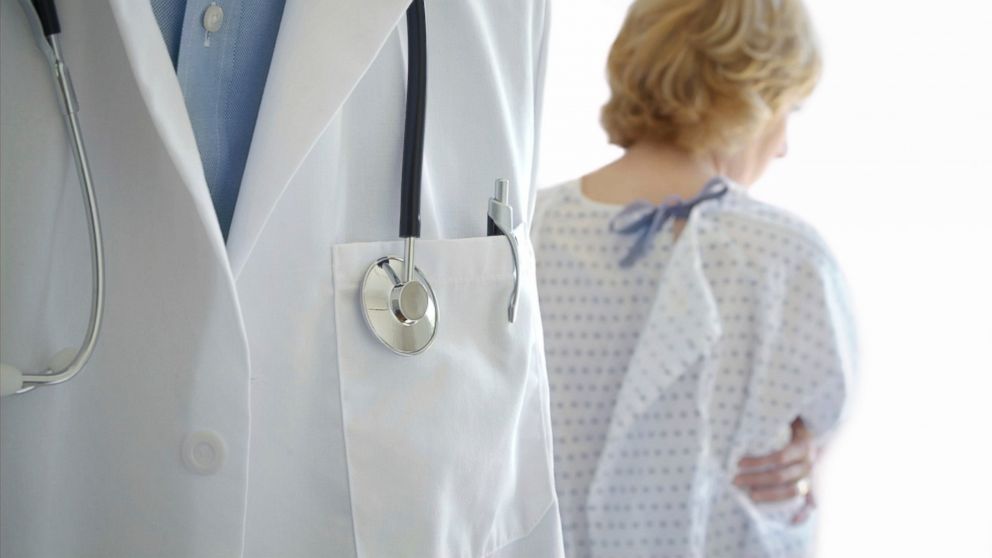What to Do If You Have a Cancer Scare
Chances are at least once in your life you’ll have some sort of cancer scare.

— -- intro:Late last month, Angelina Jolie announced that she had surgery to remove her ovaries and fallopian tubes with the aim of reducing her cancer risk. In her New York Times op-ed, she noted that she had recently had a cancer scare: Her doctor was concerned about some unusual blood test results, and sent her for further scans.
“I went through what I imagine thousands of other women have felt,” she wrote. “I told myself to stay calm, to be strong, and that I had no reason to think I wouldn’t live to see my children grow up and to meet my grandchildren.” Fortunately, the follow-up tests showed no signs of cancer.
Chances are at least once in your life you’ll have some sort of cancer scare—a strange mole that needs to be biopsied, a repeat mammogram, an abnormal Pap smear. In most cases, it’s nothing to worry about: “This happens every day in doctors’ offices all across America,” says Richard Wender, MD, chief cancer control officer at the American Cancer Society.
But it can be hard to stay calm when it’s actually happening to you. Here are five things to keep in mind.
15 Diseases Doctors Often Get Wrong
quicklist:1category: title:Take a step backurl:text:Abnormal cancer screening results happen all the time: As many as 35% of women over the age of 40 report having had an abnormal Pap smear or mammogram at some point. “The most common resolution of that abnormal test is finding that you don’t have cancer,” Dr. Wender says.
Remember, the reason these tests have such high cancer-detection rates is because they screen women for any small thing—like calcification on a mammogram—that could potentially indicate cancer.
19 Medical Tests Everyone Needs
quicklist:2category: title:Make sure you’re hearing your doctorurl:text:“Sometimes, when I explain a screening test result to a patient, I can sense that she’s so anxious she’s not processing what I’m saying,” says Dr. Wender. Research shows that almost half of the details remembered from a doctor’s visit are incorrect.
Don’t rely on your memory, especially at an emotional time like this. Either jot down exactly what the doctor says (and don’t be afraid to have them repeat it) or make sure a friend or family member is either in the office with you or on the phone when you speak to your physician.
quicklist:3category: title:Try not to stress about additional waitingurl:text:If suspicious mammogram findings mean your doctor recommends a biopsy, don’t worry if it’s several weeks away. “Waiting three weeks will not change the prognosis and outcome at all if it does turn out to be cancer,” says Dr. Wender.
You also shouldn’t necessarily be alarmed if your doctor doesn’t recommend more invasive testing—such as a colposcopy or biopsy—and instead suggests simply returning for follow-up screening in six months.
“Oftentimes a doctor or technician will see something that doesn’t look like cancer, but they just want to double check it in a few months to be safe,” explains Dr. Wender.
quicklist:4category: title:Don’t go overboard on Dr. Googleurl:text:Sometimes, Google can be reassuring: “If you type in ‘abnormal pap smear’ or ‘abnormal mammogram’ or even ‘suspicious mole,’ you’ll see how common the false positive rate is,” says Dr. Wender.
But other times, you’ll just scare yourself unnecessarily. “I had a patient recently who had some tests come back suggestive of a very lethal form of uterine cancer,” recalls Dr. Wender. “When I called her, I said, ‘Don’t research it on the Internet. Just don’t do it.’ She didn’t—and six weeks later, when we learned after a surgical biopsy that the results were benign, she was tremendously relieved.”
9 Scary Symptoms You Don’t Need to Worry About
quicklist:5category: title:Ask lots of questionsurl:text:If you’ve got fears, articulate them. “If you ask your doctor what the likelihood is that your test result indicates cancer, they may not have exact numbers but they should be able to respond to you in a general way, which is usually reassuring,” says Dr. Wender.
And if they brush off your worries, or refuse to answer you, it may be time to seek out another doctor—or at least get a second opinion.